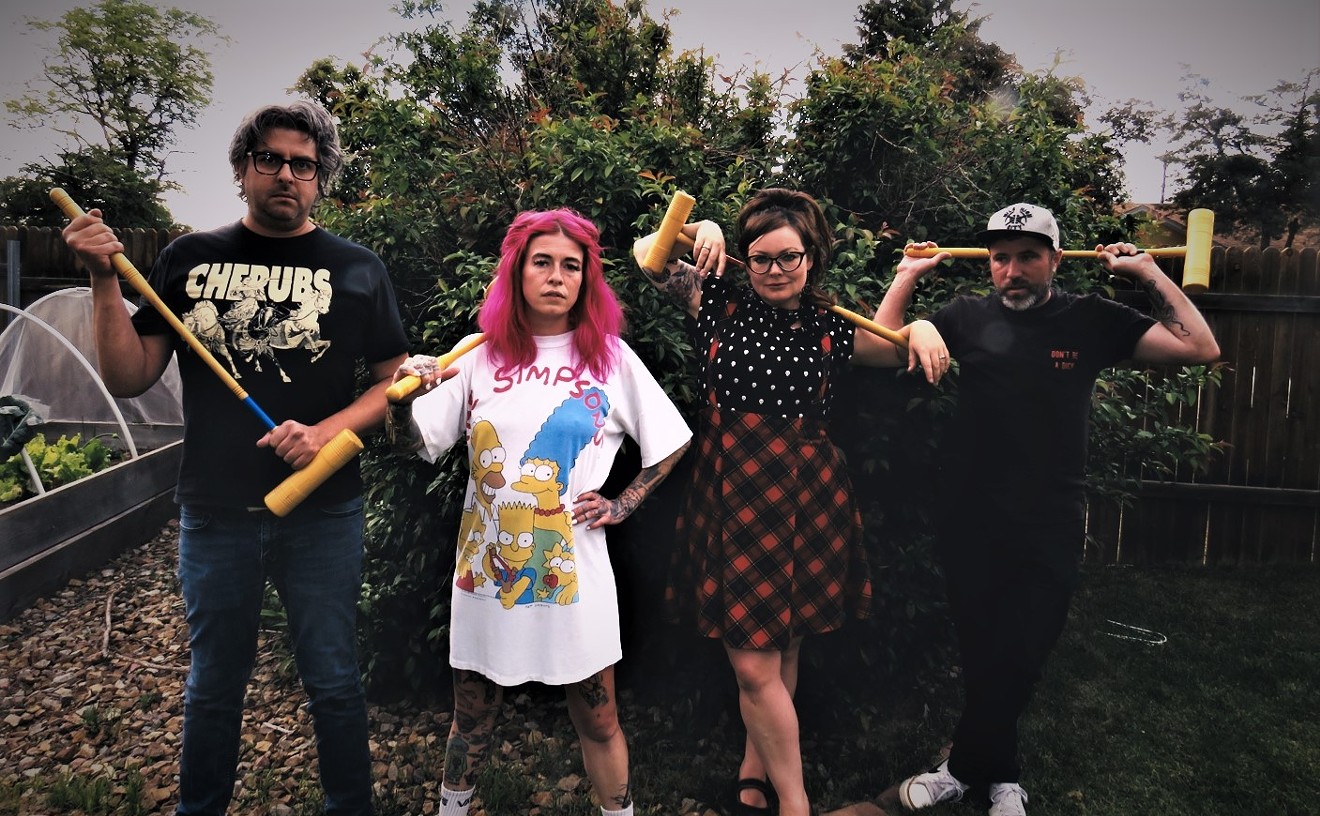He talks about all the science fiction books that sit around him in his home. Shorter, who's an honorary member of the Planetary Society, has a copy of Neil deGrasse Tyson's Death By Black Hole, in which the author inscribed "congratulations on your 80th trip around the sun." And he's got biographies and autobiographies of Lyndon B. Johnson and Harry Truman, and lots of stories and novels.
"All around me is Captain Marvel, Superman, Wonder Woman, the lady who played in Matrix 3 [Revolutions], the big blue guy from the Watchman. There's a lot of Technicolor in this room. There's a whole bunch of fairies all over the place in different positions -- sitting, playing the pan flute. There's a fairy who's bad, that's what we call the brat. I got Pegasuses all over the place too -- the winged horse -- four or five of them. My compadres."
In Shorter's biography, Footprints: The Life and Work of Wayne Shorter, author Michelle Mercer wrote, "When Blakey schooled later generations of Messengers, he'd tell them that Wayne had the imagination of a child: probing, playful, and always busy. But the harmonic complexity of Wayne's tunes was advanced and could be hard to master, as his bandmates' long practice sessions attested to."
With Shorter's latest effort, last year's Without a Net, there's still some of that child-like imagination, yet there's a fearlessness about his playing, as with the rest of musicians in his quartet -- pianist Danilo Perez, bassist John Patitucci and drummer Brian Blade. And that fearlessness is what the music is about.
"That's what I'm talking about when I'm trying to write the music," says Shorter. "The word 'jazz' means 'go forward' and 'I dare you.' The meaning is evolving. I don't get captured in a word, because if you get captured in a word, you're nothing but a statue. You're a status quo statue."
Take "Unidentified Flying Object," from Without a Net, for example. "It's not about the UFOs and all that," he says. "It's every note that's played on that piece. Every note is unidentified. It goes here and it goes there -- identifying something -- that's a primary set up for prescription. You identify something then you describe it and prescribe about it. Like somebody know where you all the time because you are identified. Ain't no mystery to the mystery. That mystery is that ultimate adventure we're being transported on."
What Wayne Shorter learned from Miles Davis is on the next page.
Part of Shorter's ultimate adventure, and where he came to prominence, was in the '50s during his stint with the Jazz Messengers. Shorter says Blakey would have musicians approach the drummer and ask, "'Mr. Blakey, what do you think of my playing?'" Shorter says. "And he would say, 'You have a lot of technique, you play the drums well, you get the audience excited and get them going and everything [Shorter imitates Blakey's raspy voice] but young man, where are you? You can't hide behind your instrument. Nobody can hide behind the instrument."
While Shorter was part of the Jazz Messengers, he says that Miles Davis called him twice about joining his group, but he didn't want to leave the group since he'd just started with them. But in 1964, Shorter joined Davis's quintet in a sort of trial-by-fire at the Hollywood Bowl. A few days later Shorter was in the studio with the group, and when Davis asked Shorter if he had any songs. The saxophonist had been keeping a notebook during his days in the Army and he'd just jot things down about stuff he heard on the outside, like Clifford Brown dying in a car accident.
"In the studio [Miles] asked me, 'You got anything?'" Shorter says. "I opened the book up and the first thing in the book was 'ESP' and he said, 'Lets try that.' Bam! We started playing. I think it might have been two takes. Maybe one. I don't know.
"It wasn't work with Miles," Shorter says. "But it wasn't messing around. It was a place where...you had to get going. We had to play...with respect but also celebrating all those people who came before us and who will come after."
• BACKBEAT'S GREATEST HITS • - The fifty best rap lyrics of all time - The ten biggest concert buzzkills - Five more concert buzzkills - From Phish to Floyd, the ten best light shows
Follow @Westword_Music











